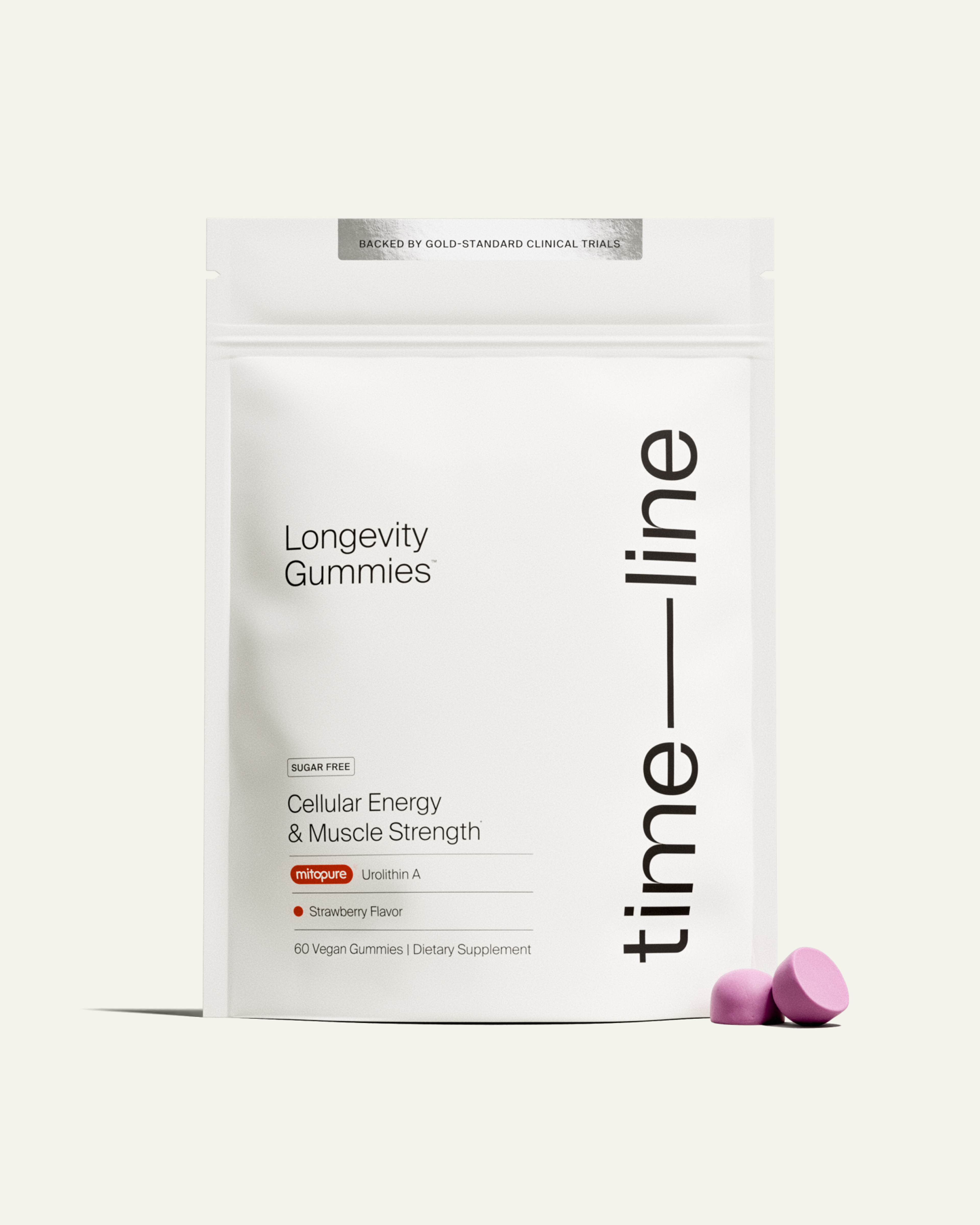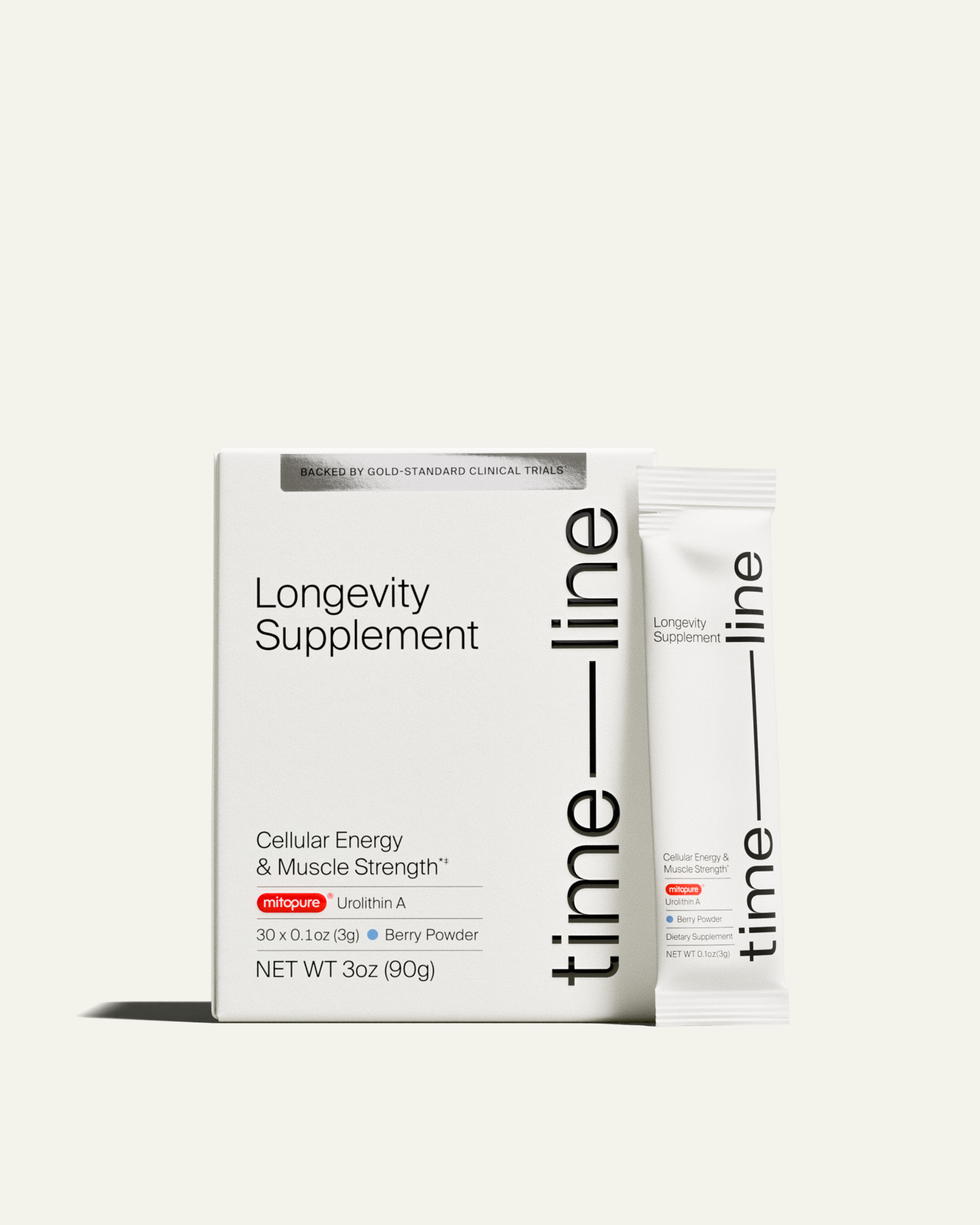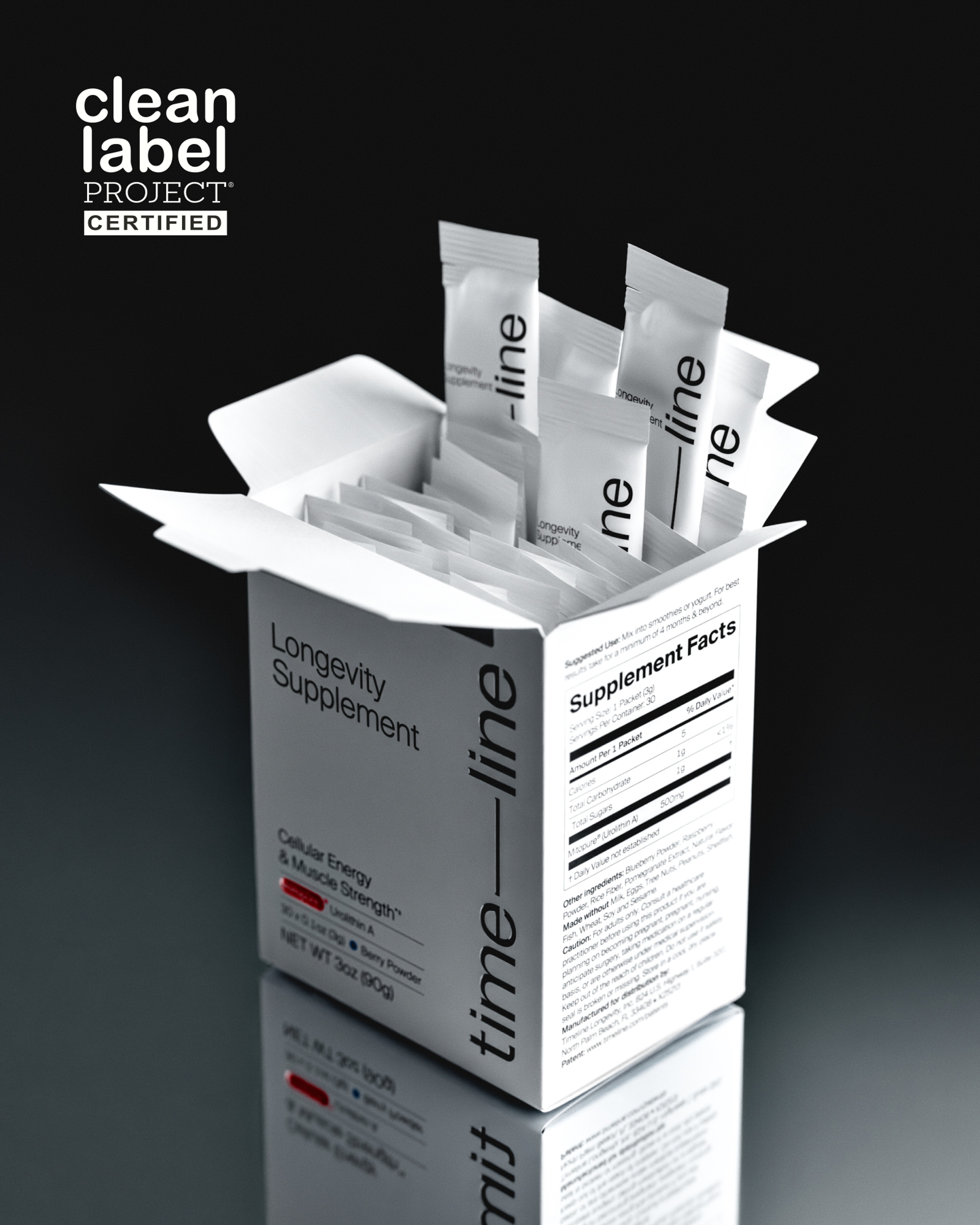Carbs and Exercise - The Power of Carbs in Fueling Fitness
Carbs and exercise go hand-in-hand, especially at higher intensities. Learn when to consume carbohydrates during exercise and why you should.
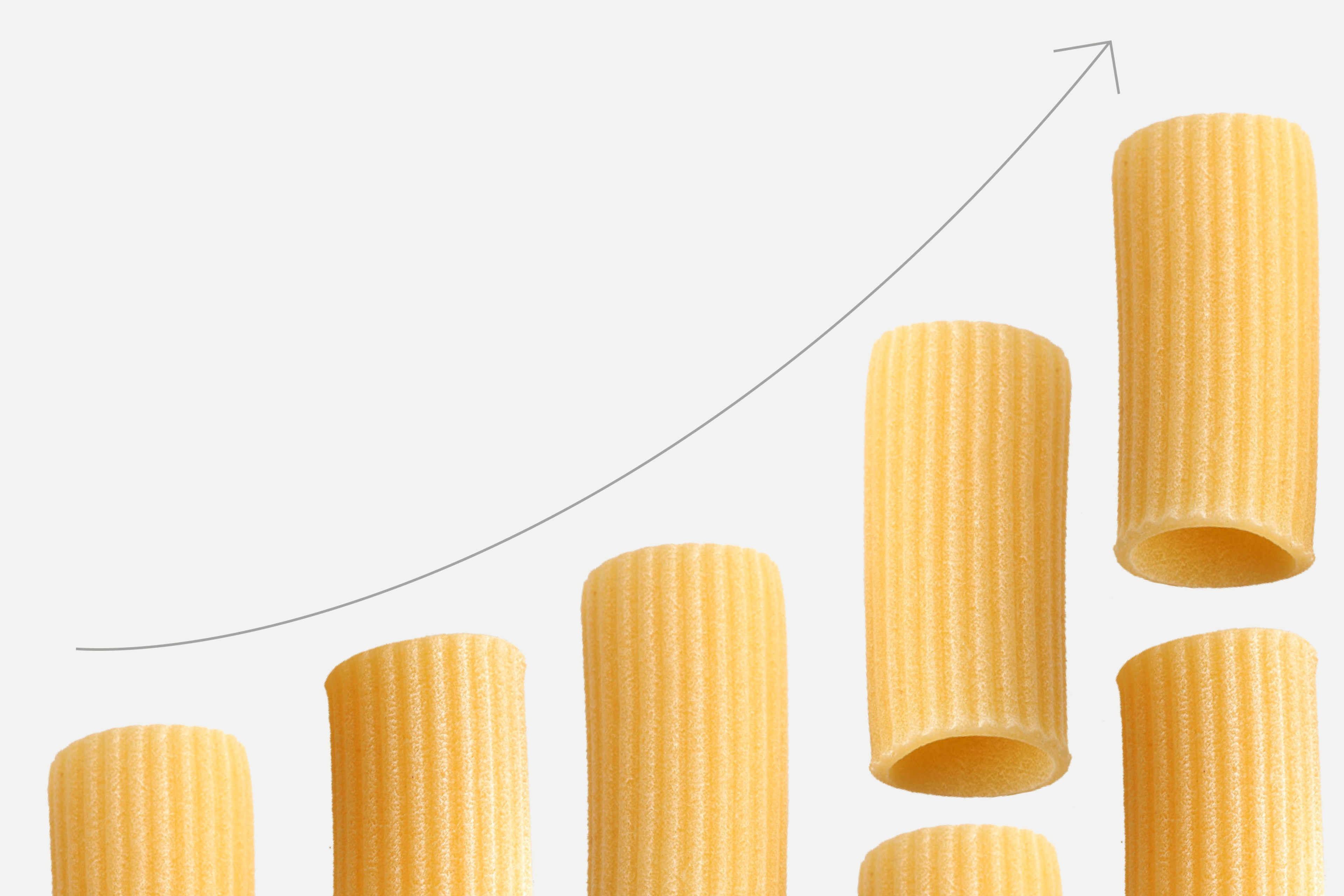
What to know
Carbohydrates are crucial for athletes and are the most efficient source to fuel the mitochondria, the body’s energy center of the cell
There are simple and complex carbs, where simple carbs provide quick energy and complex carbs provide longer-lasting energy
The body utilizes carbs and protein for energy at different amounts depending on the exercise intensity and duration
Daily carbohydrate needs for athletes range from 6-10 grams per kilogram of body weight per day to upwards of 10-12 grams per kilogram prior to competition
Other ways to optimize mitochondrial performance include endurance training and supplementing with Urolithin A, the primary ingredient in Mitopure®
If you’re an athlete, improving performance is likely top of mind. And what you eat plays a foundational role in how well you perform.
Carbohydrates are the body’s most efficient fuel source during exercise, yet they are often misunderstood and unfairly labeled as “bad.” In reality, carbohydrates are essential for health and performance, especially for athletes with higher energy demands.
In this article, we’ll break down the science behind carbs and exercise and explain when and how to use carbohydrates to fuel your workouts more effectively.
What Are Carbs?
Carbs, or carbohydrates, are one of the three macronutrients in our diet. The term “macro” in “macronutrients” means they have a large chemical structure. We also need these nutrients in large amounts. This is especially true if you are an athlete and want to maximize your nutrition for training.
Carbs should make up the bulk of your diet, as our mitochondria use them as the primary source of fuel for energy production. [1]The mitochondria are our cells' energy centers; thus, fueling them is a priority.
There are two types of carbs: simple and complex. These labels describe how the carbohydrates are structured and how quickly the body breaks them down for energy. Both types play important roles and should be included regularly in a balanced diet, both for long-term health and athletic performance.

Simple carbs
These carbohydrates break down quickly, making them an ideal fuel source during exercise or when consumed 30 to 90 minutes before a workout[2].
Examples of simple carbs include:
- Fruit
- Milk
- Energy chews, gels, drinks
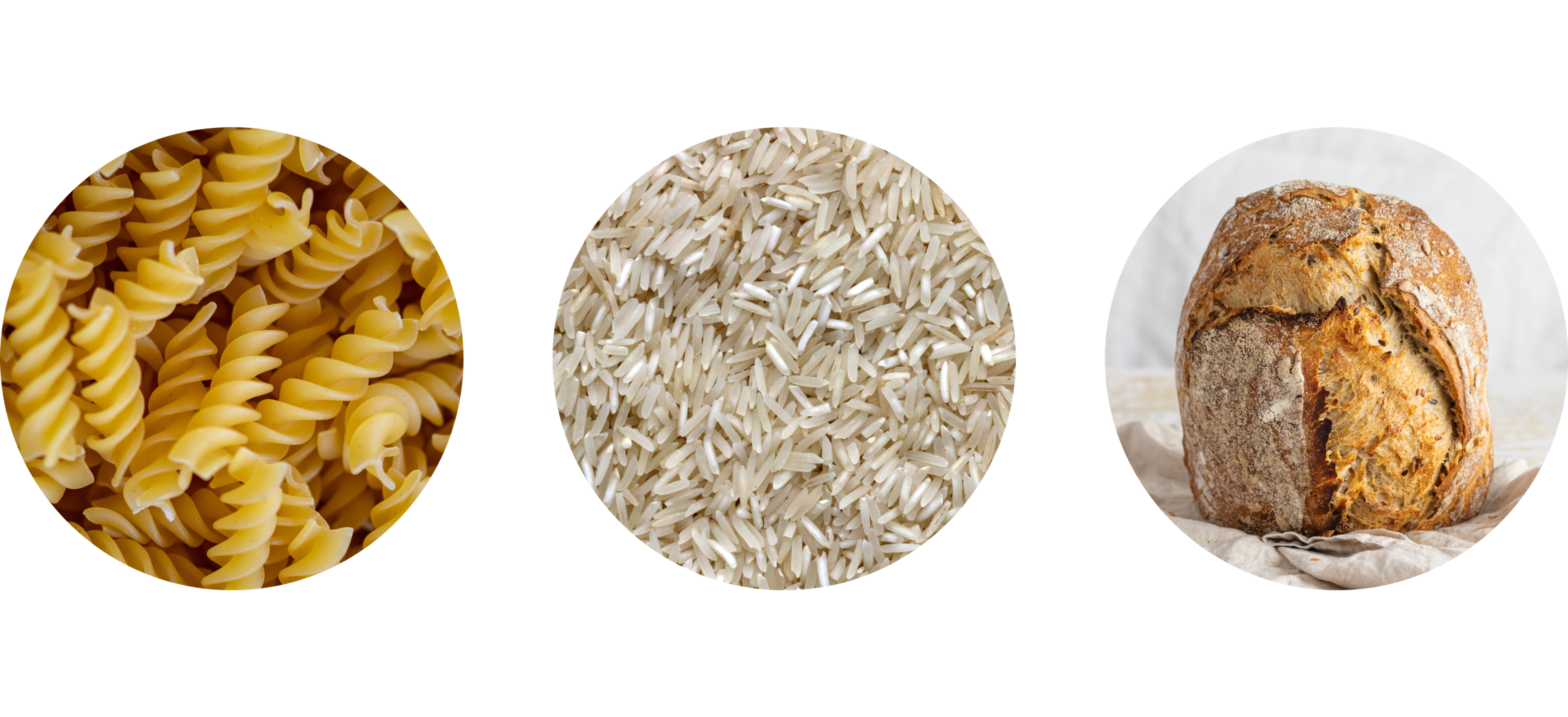
Complex carbs
Complex carbs are a slower-digesting source, offering more sustainable energy. It is best to consume these at least 2 hours before exercise.[3]
Complex carbs are:
- Pasta
- Bread
- Rice
- Legumes
- Starchy veggies - potatoes and squash
All carbs are converted into glucose or glycogen, the storage form of glucose in the liver and muscle tissue. This stored glucose is then reserved for later use, such as during exercise.[4]
A range of 6-10 grams of carbohydrate per kilogram of body weight is recommended for athletes per day.
Carbs and Exercise
If you’re trying to make the most of your training, it’s essential to know how your body utilizes carbohydrates during different workouts. This can help ensure your mitochondria are properly fueled to have the best performance possible.
During all types of exercise, the body breaks down a combination of carbs and fat for energy. This is called substrate utilization. The percentage of substrate utilized, i.e., carbs and fats, depends on the intensity and duration of exercise.
In general, higher-intensity and longer-duration exercise increases carbohydrate requirements, though there are some nuances to that rule. This is important to know because if you’re doing the type of exercise that uses more carbs, you’ll want to make sure to top off your glycogen stores.[5]
Low-intensity exercise
Low-intensity exercise, such as walking, slow jogging, and yoga, primarily uses fat rather than carbs. Your body will pull its fat stores for energy, preserving your muscle and liver glycogen. This means these exercises don’t require as much carb intake before, during, and after because they’re not depleting your glycogen and, therefore, your energy stores.
High-intensity exercise
For high-intensity workouts such as running, fast cycling, and heavy weight lifting, glycogen stores and blood glucose are primarily used as quick-acting energy sources. This means your carb consumption will be even more important to fuel these more intense exercises.
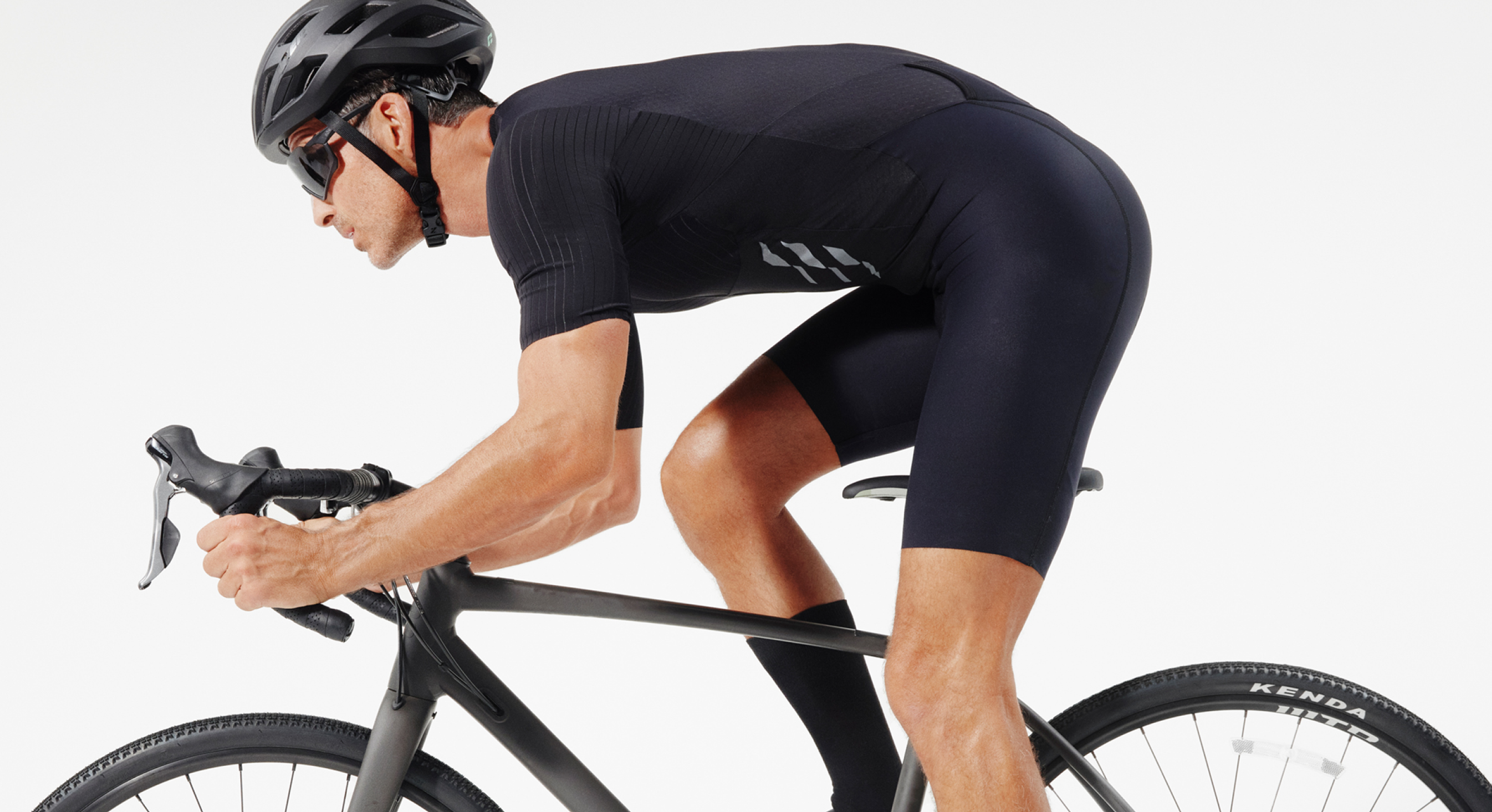
Endurance exercise
If you are training for endurance activities lasting more than two hours, even at a lower intensity, your body will still rely on stored carbohydrates whenever possible. When glycogen stores become depleted, the body shifts toward using fat for energy.
If carbohydrates are not adequately replenished, this shift can lead to reduced energy, declining performance, and, over time, increased muscle breakdown.
How Many Carbs Do You Need?
Daily carbohydrate needs
Your daily carbohydrate needs can vary depending on your training schedule. Generally, a range of 6-10 grams of carbohydrate per kilogram of body weight is recommended for athletes per day.[6]
For a heavy training or endurance competition day, upwards of 10-12 grams of carbs per kilogram may be needed for 36-48 hours leading up to the event.[7]
Carbohydrates during exercise
If your workout lasts less than 60 minutes, you likely won't need additional carbohydrates during exercise. But for sessions longer than an hour, or when training in challenging conditions such as extreme heat, cold, or humidity, consuming 30 to 60 grams of carbohydrates per hour is generally recommended.
Choose carbs from soft fruit, gels, chews, or liquids, depending on your preference.
Carbohydrates after exercise
While we more often think of protein in terms of post-exercise muscle recovery and joint health, replenishing carbohydrates also helps you further repair and rebuild muscle.[8]
After exercise, you should consume 1.0-1.5 grams of carbs per kilogram of body weight during the first half hour and every 2 hours for 4-6 hours to replenish liver and muscle glycogen stores.
Carb Timing Before Exercise
Timing your carbohydrate intake before exercise also matters. A general guideline is to eat a full, carbohydrate-rich meal three to four hours before your workout, a higher carbohydrate snack about two hours before, and a small, easy-to-digest snack providing about 30 grams of carbohydrates about 30 minutes prior to exercise.[9]
A few ideas for pre-workout snacks with 30 grams of carbs:
- Greek yogurt and berries: Try a small serving (about ¼ cup) of plain Greek yogurt with mixed berries.
- Rice cakes with peanut butter: Two rice cakes with a thin spread of peanut butter and a drizzle of honey or a few sliced bananas.
- Apple with almond butter: A medium apple with one tablespoon of almond butter sprinkled with cinnamon.
Fuel Your Mitochondria for Optimal Performance
In addition to the almighty carb, there are other simple ways to support your mitochondria for optimized performance.
Endurance training increases the size and number of mitochondria, helping your muscles use energy more efficiently. Over time, this means less reliance on glycogen and glucose and more sustained energy, stamina, and endurance. [10]
Urolithin A, the principal ingredient in Mitopure®, offers another way to help your mitochondria. It is clinically proven to improve markers of mitochondrial health and stimulate a mitochondrial recycling process called mitophagy.[11] Learn more about Mitopure, its benefits, and how it may complement your fitness routine.

Mitopure Softgels
4.5 · 3884 reviews
The simplest form of Mitopure
Authors

Author
Dietitian-Nutritionist, and Health Content Writer

Reviewed by
PhD, RD CSSD
References
- ↑
Pizzorno J. Mitochondria-Fundamental to Life and Health. Integr Med (Encinitas). 2014 Apr;13(2):8-15. PMID: 26770084; PMCID: PMC4684129.
- ↑
Holesh JE, Aslam S, Martin A. Physiology, Carbohydrates. [Updated 2023 May 12]. In: StatPearls [Internet]. Treasure Island (FL): StatPearls Publishing; 2023 Jan-. Available from: https://www.ncbi.nlm.nih.gov/books/NBK459280/
- ↑
Ferretti F, Mariani M. Simple vs. Complex Carbohydrate Dietary Patterns and the Global Overweight and Obesity Pandemic. Int J Environ Res Public Health. 2017 Oct 4;14(10):1174. doi: 10.3390/ijerph14101174. PMID: 28976929; PMCID: PMC5664675.
- ↑
Hearris MA, Hammond KM, Fell JM, Morton JP. Regulation of Muscle Glycogen Metabolism during Exercise: Implications for Endurance Performance and Training Adaptations. Nutrients. 2018 Mar 2;10(3):298. doi: 10.3390/nu10030298. PMID: 29498691; PMCID: PMC5872716.
- ↑
Mul JD, Stanford KI, Hirshman MF, Goodyear LJ. Exercise and Regulation of Carbohydrate Metabolism. Prog Mol Biol Transl Sci. 2015;135:17-37. doi: 10.1016/bs.pmbts.2015.07.020. Epub 2015 Aug 20. PMID: 26477909; PMCID: PMC4727532.
- ↑
Hassapidou MCarbohydrate requirements of elite athletesBritish Journal of Sports Medicine 2011;45:e2.
- ↑
Podlogar T, Wallis GA. New Horizons in Carbohydrate Research and Application for Endurance Athletes. Sports Med. 2022 Dec;52(Suppl 1):5-23. doi: 10.1007/s40279-022-01757-1. Epub 2022 Sep 29. PMID: 36173597; PMCID: PMC9734239.
- ↑
Margolis LM, Allen JT, Hatch-McChesney A, Pasiakos SM. Coingestion of Carbohydrate and Protein on Muscle Glycogen Synthesis after Exercise: A Meta-analysis. Med Sci Sports Exerc. 2021 Feb 1;53(2):384-393. doi: 10.1249/MSS.0000000000002476. PMID: 32826640; PMCID: PMC7803445.
- ↑
Kerksick CM, Arent S, Schoenfeld BJ, Stout JR, Campbell B, Wilborn CD, Taylor L, Kalman D, Smith-Ryan AE, Kreider RB, Willoughby D, Arciero PJ, VanDusseldorp TA, Ormsbee MJ, Wildman R, Greenwood M, Ziegenfuss TN, Aragon AA, Antonio J. International society of sports nutrition position stand: nutrient timing. J Int Soc Sports Nutr. 2017 Aug 29;14:33. doi: 10.1186/s12970-017-0189-4. PMID: 28919842; PMCID: PMC5596471.
- ↑
Fujimoto T, Kemppainen J, Kalliokoski KK, Nuutila P, Ito M, Knuuti J. Skeletal muscle glucose uptake response to exercise in trained and untrained men. Med Sci Sports Exerc. 2003 May;35(5):777-83. doi: 10.1249/01.MSS.0000065070.49295.C0. PMID: 12750587.
- ↑
Andreux PA, Blanco-Bose W, Ryu D, Burdet F, Ibberson M, Aebischer P, Auwerx J, Singh A, Rinsch C. The mitophagy activator urolithin A is safe and induces a molecular signature of improved mitochondrial and cellular health in humans. Nat Metab. 2019 Jun;1(6):595-603. doi: 10.1038/s42255-019-0073-4. Epub 2019 Jun 14. PMID: 32694802.
Disclaimer
The information in this article is for informational purposes only and should not be taken as medical advice. Always consult with your medical doctor for personalized medical advice.

·
Skincare·
